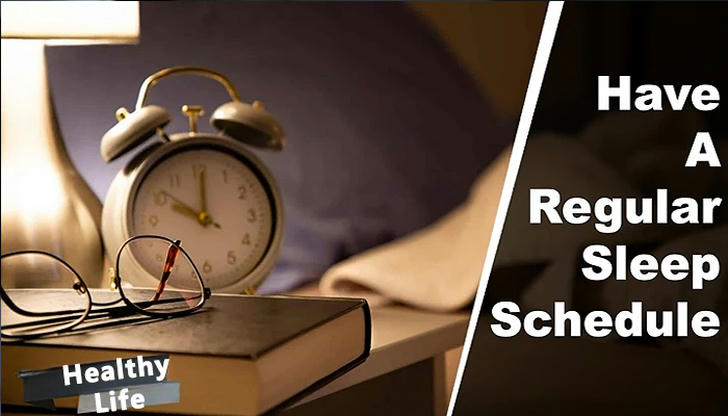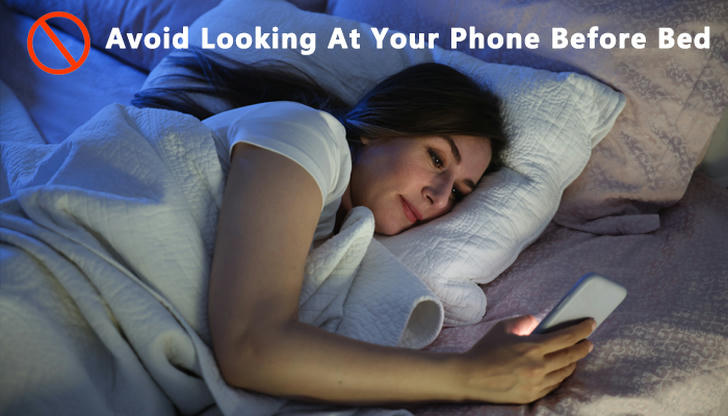Sleep Better Tonight: Evidence-Based Tips for Improving Your Sleep Quality

Sleep is one of the most important aspects of our health, yet many people struggle to get the quality rest they need. Inadequate sleep can have far-reaching effects, from weakened immunity to cognitive decline, and can impact your mood, productivity, and overall well-being. Common sleep issues, such as insomnia, restless nights, or poor sleep quality, are widespread, but they don’t have to be permanent. The good news is that by making a few evidence-based adjustments to your routine, you can dramatically improve your sleep quality.
This article provides science-backed tips that can help you sleep better tonight. Whether you have trouble falling asleep, staying asleep, or waking up refreshed, these strategies will guide you towards a better night’s rest.
I. Understanding Sleep and Its Benefits
Sleep Stages
Before diving into the tips, it’s important to understand the different stages of sleep. Sleep is divided into two main types: non-rapid eye movement (NREM) sleep and rapid eye movement (REM) sleep. NREM sleep is further divided into three stages, ranging from light sleep to deep, restorative sleep. REM sleep, the stage where most dreaming occurs, is also essential for memory consolidation and emotional regulation.
Quality sleep isn’t just about the total number of hours you sleep, but the depth and consistency of each sleep stage. For instance, deep sleep is vital for physical restoration, while REM sleep plays a key role in cognitive functions like learning and problem-solving.
Why Sleep Quality Matters
Quality sleep impacts virtually every aspect of our health. Physically, it boosts your immune system, helps maintain a healthy weight, regulates blood sugar levels, and enhances heart health. Mentally, quality sleep is critical for mood regulation, cognitive function, memory retention, and overall brain health. Essentially, sleep is your body's natural recovery process, helping you function optimally each day.
II. Evidence-Based Tips for Improving Sleep Quality

1. Establish a Consistent Sleep Schedule
One of the most effective ways to improve sleep quality is by sticking to a regular sleep schedule. The body’s internal clock, known as the circadian rhythm, thrives on consistency. When you go to bed and wake up at the same time every day, even on weekends, you’re helping your body maintain its natural rhythm.
Why Consistency Matters: Consistency in your sleep schedule helps regulate your body’s production of melatonin, the hormone that signals your body to fall asleep. Disrupting this cycle, especially on weekends, can throw off your sleep patterns and make it harder to fall asleep during the week.
Tips for Consistency:
Set a fixed bedtime and wake-up time every day.
Avoid sleeping in on weekends to make sure your body doesn’t become accustomed to irregular sleep patterns.
2. Create a Sleep-Friendly Environment
Your bedroom environment plays a crucial role in how well you sleep. Optimal conditions can make the difference between tossing and turning and falling into a deep, restful sleep.
Optimal Sleep Conditions: Research suggests that a cool room (around 60-67°F or 15-20°C) is ideal for sleep. A dark and quiet space also enhances sleep quality by minimizing disruptions from external stimuli.
How to Set Up Your Bedroom:
Keep your room cool and well-ventilated.
Use blackout curtains or an eye mask to block out light.
Invest in a comfortable mattress and pillows that support your preferred sleep position.
Consider using a white noise machine or earplugs to drown out distracting sounds.
3. Limit Exposure to Screens Before Bed

Modern technology has made it easier to stay connected, but it also comes with a downside when it comes to sleep. Exposure to blue light emitted by phones, tablets, and computers can interfere with melatonin production, making it harder to fall asleep.
Impact of Blue Light: Blue light disrupts the circadian rhythm by inhibiting melatonin, the hormone that signals your body to sleep. Studies show that avoiding screens 30-60 minutes before bedtime can help you fall asleep faster and sleep more soundly.
Recommendations:
Avoid using electronic devices at least 30 minutes before bed.
Use "Night Mode" or "Blue Light Filter" on your devices in the evening.
Consider reading a book or listening to soothing music instead of scrolling through your phone.
4. Mind Your Diet and Caffeine Intake
What you eat and drink can significantly impact your sleep quality. Caffeine and heavy meals too close to bedtime can disrupt your ability to fall asleep, while certain foods can actually promote better sleep.
Foods and Drinks That Help Sleep: Certain foods, such as those rich in magnesium (like bananas, almonds, and leafy greens), tryptophan (found in turkey, chicken, and eggs), and melatonin (such as cherries and oats), can help regulate your sleep cycle.
Avoid Stimulants: Caffeine, nicotine, and alcohol can all negatively affect sleep. Caffeine, for example, can stay in your system for up to six hours, making it difficult to fall asleep if consumed late in the day.
Tips:
Avoid large meals, caffeine, and alcohol for at least 4–6 hours before bedtime.
Opt for a light snack if you’re hungry before bed, such as a banana with a handful of nuts.
5. Incorporate Relaxation Techniques

Winding down before bed is crucial for signaling to your body that it’s time to rest. Relaxation techniques can help reduce anxiety and stress, making it easier to fall asleep and stay asleep.
Relaxing Activities: Activities such as meditation, deep breathing exercises, or gentle yoga can relax your body and mind. Progressive muscle relaxation (PMR), which involves tensing and relaxing muscle groups, is another effective technique for relieving tension.
Progressive Muscle Relaxation (PMR): To practice PMR, start by tensing the muscles in your feet for a few seconds and then slowly release the tension. Move upward through your body, focusing on each muscle group, from your legs to your face.
6. Exercise Regularly
Physical activity is closely linked to better sleep quality. Regular exercise can help you fall asleep faster and improve the depth of your sleep. However, timing matters.
How Exercise Improves Sleep: Exercise promotes the release of endorphins, which can reduce anxiety and stress, both of which are major contributors to poor sleep.
Best Time to Exercise: While exercise can improve sleep quality, working out too late in the evening can have the opposite effect by raising your heart rate and body temperature. Aim for exercise in the morning or early afternoon.
7. Manage Stress and Anxiety
Chronic stress and anxiety are major contributors to sleep disturbances. Anxiety about not being able to sleep can make the problem worse, creating a cycle of stress and poor sleep.
Impact of Stress on Sleep: When you're stressed, your body produces cortisol, a hormone that can keep you awake and alert, making it difficult to relax enough to sleep.
Techniques to Reduce Stress:
- Mindfulness and meditation are effective techniques for calming the mind before bed.
- Journaling can help clear your mind and reduce anxiety, allowing you to relax before sleep.
8. Avoid Alcohol and Naps Late in the Day

Though alcohol can make you feel drowsy, it disrupts the quality of your sleep, particularly the REM stage, leading to lighter, less restorative sleep.
Effects of Alcohol on Sleep: Alcohol may help you fall asleep quickly, but it causes frequent awakenings during the night and reduces the depth of your sleep.
Napping Guidelines: While short naps (20-30 minutes) can be refreshing, longer naps, especially later in the day, can interfere with your ability to fall asleep at night.
III. When to Seek Professional Help
If you consistently struggle to sleep despite following these tips, it may be time to seek professional help. Chronic insomnia, excessive daytime sleepiness, and other sleep disorders may require more specialized treatment.
Signs You May Need Help:
Difficulty falling asleep or staying asleep for several weeks.
Excessive daytime fatigue or sleepiness.
Snoring, choking, or gasping during sleep (possible signs of sleep apnea).
Treatment Options:
Cognitive Behavioral Therapy for Insomnia (CBT-I) is a highly effective therapy for treating chronic sleep issues.
Your doctor may recommend a sleep study or medication in more severe cases.
IV. Conclusion
Improving your sleep quality doesn’t have to be difficult. By following these evidence-based tips, you can make small changes that can have a big impact on your sleep. From establishing a consistent sleep schedule to creating a calm and comfortable environment, these tips will help you sleep better tonight and every night thereafter. Prioritize your sleep, and you’ll enjoy improved health, mood, and productivity. Sweet dreams!
